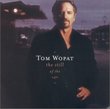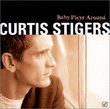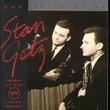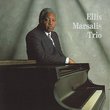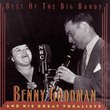| All Artists: Coleman Hawkins Title: Hawk in Europe 1934-37 Members Wishing: 3 Total Copies: 0 Label: Asv Living Era Original Release Date: 1/1/1934 Re-Release Date: 4/20/1994 Genres: Jazz, Pop Style: Swing Jazz Number of Discs: 1 SwapaCD Credits: 1 UPC: 743625505429 |
Search - Coleman Hawkins :: Hawk in Europe 1934-37
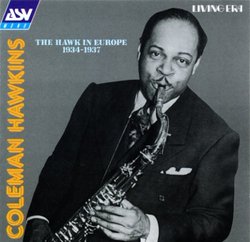 | Coleman Hawkins Hawk in Europe 1934-37 Genres: Jazz, Pop
Coleman Hawkins's brusque tenor saxophone is heard here in several contexts from his European sojourn of the mid-1930s, with English, Dutch, and French musicians, as well as a coterie of American expatriates. While the qua... more » |
Larger Image |
CD Details
Synopsis
Amazon.com
Coleman Hawkins's brusque tenor saxophone is heard here in several contexts from his European sojourn of the mid-1930s, with English, Dutch, and French musicians, as well as a coterie of American expatriates. While the quality of the supporting groups varies, it's important music, with Hawkins growing as an improviser. The earliest session has him with an English trio led by pianist Stanley Black, who contributes an impressionistic "Lullaby," while the group provides Hawkins with adequate support for a stellar effort on "Lady Be Good." The orchestra of Michael Warlup, recorded in Paris in 1935, gets excellent lead trumpet work from Arthur Briggs on "Avalon" and "What a Difference a Day Makes," and it provides a fine environment for Hawkins's solo architecture. The most significant performances are by Hawkins's "All Star Jam Band," four tunes from a 1937 Paris grouping that includes Benny Carter, on alto and trumpet, and guitarist Django Reinhardt. It's clearly a rare moment for each of the three to find himself among equals, and the stimulation extends to the rest of the group as well. The uptempo "Crazy Rhythm" has Hawkins accepting the challenge of Carter's playing, while "Out of Nowhere" has a particularly beautiful Reinhardt introduction, as well as a masterfully structured solo from the Hawk. --Stuart Broomer
Similarly Requested CDs
| Tom Wopat Still of the Night Genres: Country, Jazz, Pop, Broadway & Vocalists Label: Angel Records | |
| Patty Larkin Red = Luck Genres: Folk, Pop Label: Vanguard Records | |
| Curtis Stigers Baby Plays Around Genres: Jazz, Pop, Rock Label: Concord Records | |
| London: The Great Concerts Genre: Jazz Label: MusicMasters | |
| Bobby Mcferrin Circle Songs Genres: Jazz, Pop, Classical Label: Phantom Sound & Vision | |
| Ellis Marsalis Ellis Marsalis Trio Genres: Jazz, Pop Label: Blue Note Records | |
| Benny Goodman Best of the Big Bands Genres: Jazz, Pop, Broadway & Vocalists Label: Sony | |

 Track Listings (18) - Disc #1
Track Listings (18) - Disc #1